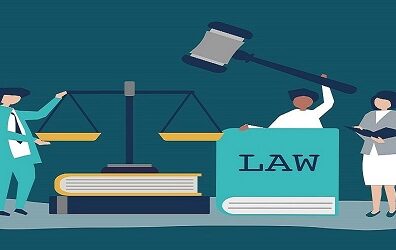UNVEILING THE LEGAL DOCTRINE OF ALTER EGO

Understanding the Doctrine of Alter Ego
In the world of law, certain principles and doctrines play a pivotal role in shaping legal decisions and ensuring justice is served. One such doctrine that holds significant importance, especially in corporate and business law, is the Doctrine of Alter Ego. This doctrine is not only intriguing but also has far-reaching implications that affect how businesses are structured, and how legal liabilities are determined. In this comprehensive article, we will explore the Doctrine of Alter Ego, its origins, applications, and its relevance in modern legal scenarios.
The term “Alter Ego” is a Latin word which means the “Other I”. It is an accepted fact that a company is a distinct legal entity separate from its shareholders and directors. By virtue of this common law principle, shareholders and directors are shielded from debts, civil and criminal liability against the company. However, the notion of alter ego allows for a legal exception to this presumption. The Doctrine of Alter Ego forbids the company shareholders and directors from seeking protection under the doctrine of a separate legal entity. The Doctrine of Alter Ego can be used to lift the corporate veil between the directors/shareholders and the company to treat both as one entity.
The Doctrine of Alter Ego is founded on the idea that the company, shareholders and managing directors are all each other’s alter egos, i.e., they are each other’s shadow or reflection or can be seen as two sides of the same coin. Thus, when the courts determine that there is just a very slight difference between the shareholders/directors and the company or a limited liability corporation, they may rely on the Doctrine of Alter Ego.
This Doctrine of Alter Ego can be used by the courts to disregard the status of the shareholders, officers and directors of a company so that they can be held personally accountable when they act dishonestly or unfairly so that they can be held personally liable for their actions.
The Origins of the Doctrine of Alter Ego
The origins of the Doctrine of Alter Ego can be traced back to common law principles and equity. It is often associated with the Latin phrase “pierce the corporate veil,” which signifies the act of looking beyond the corporate structure to find the true individuals who are responsible for the company’s actions. This doctrine emerged as a means to prevent abuse of the corporate form and to ensure that individuals could not hide behind the corporate shield to engage in fraudulent or wrongful activities.
The Test of Alter Ego
To determine whether the Doctrine of Alter Ego applies in a particular case, courts typically apply a set of criteria or a test. While the specific criteria may vary from jurisdiction to jurisdiction, some common factors include:
- Undercapitalization
Courts may consider whether the corporation was intentionally undercapitalized to shield its owners from personal liability. If it is found that the corporation lacks the financial resources to cover its obligations, the alter ego doctrine may be invoked.
- Commingling of Assets
When the personal and corporate assets of the shareholders or owners are mixed or commingled to the extent that it is difficult to distinguish between them, it may indicate that the corporation is an alter ego.
- Lack of Formalities
Failure to adhere to corporate formalities, such as holding regular meetings, maintaining separate financial records, or following corporate bylaws, can strengthen the argument that the corporation is an alter ego.
- Fraudulent Intent
If it can be proven that the owners or shareholders formed the corporation with fraudulent intent or to engage in wrongful activities, the alter ego doctrine becomes relevant.
- Control
A key element in the alter ego analysis is control. If an individual or group exercises excessive control over the corporation, to the point where it operates solely at their direction, it can support the application of the alter ego doctrine.
Implications of the Doctrine of Alter Ego
Understanding the Doctrine of Alter Ego has significant implications, both for business owners and individuals involved in legal disputes. Some of the key implications include:
- Personal Liability
When the alter ego doctrine is successfully applied, individuals can be held personally liable for the debts, obligations, or wrongful actions of the corporation. This can have serious financial consequences for the owners.
- Creditor’s Rights
Creditors may use the alter ego doctrine to go after the personal assets of the owners or shareholders to satisfy corporate debts. This can provide creditors with an additional avenue for recovering their claims.
- Fraud Prevention
The doctrine serves as a deterrent against fraudulent activities and the misuse of corporate entities for personal gain. It reinforces the principle that businesses must be operated transparently and in accordance with legal standards.
- Business Structuring
Business owners need to be aware of the criteria used to apply the alter ego doctrine. They should structure their businesses in a way that minimizes the risk of being considered an alter ego, which may involve maintaining clear financial separation and following corporate formalities.
Modern Applications and Examples of the Doctrine of Alter Ego
In the modern legal landscape, the Doctrine of Alter Ego continues to be relevant, particularly in cases involving closely-held corporations, limited liability companies (LLCs), and partnerships. It is often invoked in cases of fraudulent conveyance, where assets are transferred to a corporation to avoid creditors, or in cases of shareholder disputes where one party alleges that the other is using the corporation as their alter ego to their detriment.
Case Law:
The Supreme Court of India, in the judgment of Sunil Bharti Mittal v. Central Bureau of Investigation AIR 2015 SC 923, clarified the law of “alter ego”. In the instant case the Special Judge had summoned and proceeded against the Directors of the Company. The Special Judge, had held “On the other hand, the reason for summoning these persons and proceeding against them are specifically ascribed in this para which, prima facie, are:
- These persons were/are in the control of affairs of the respective companies.
- Because of their controlling position, they represent the directing mind and will of each company.
- State of mind of these persons is the state of mind of the companies. Thus, they are described as “alter ego” of their respective companies.
The Apex Court while overruling the decision of the Special Judge, observed that while the Special Judge had applied the principle of alter ego, it had done so in reverse. The criminal mens rea had been attributed to the directors on the assumption that they are the directing minds behind the acts of the Company. The Supreme Court observed that the Special Judge had ignored the fact that such an interpretation of the alter ego doctrine would go against the position of law that there is no vicarious liability in criminal law, unless expressly provided in the statute.
Conclusion
The Doctrine of Alter Ego is a powerful legal concept that underscores the importance of transparency, corporate governance, and the prevention of fraudulent activities. It allows the legal system to hold individuals accountable when they abuse the corporate structure for personal gain or wrongful purposes. Business owners and legal practitioners alike should be well-versed in the criteria and implications of the doctrine to navigate the complex terrain of corporate law effectively. As the legal landscape evolves, the Doctrine of Alter Ego will continue to shape the boundaries of corporate liability and accountability, ensuring that justice is served in an ever-changing business world.
Follow Us
Keep Yourself Updated By Following Us




